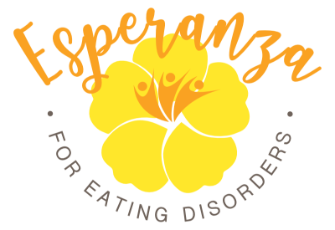
Adolescent Partial Hospitalization Program (PHP)
At Esperanza, we understand that the eating disorder treatment required for adolescents is not the same as what is successful for adults. Evidence-based therapies including CBT, DBT and ACT have been modified for teen minds and environments. Developmentally appropriate materials and groups, designed specifically for the adolescent with an eating disorder, are at the heart of our programs. And treatment takes place in a home-like environment staffed with compassionate and knowledgeable professionals who help individuals feel valued and listened to.
Recovery by Doing helps patients incorporate new skills and behaviors into their lives and is part of every level of care at Esperanza. Recovery by Doing means that adolescents participate in a variety of evidence-based therapy groups where skills they are learning are put into practice. Hands-on nutrition education includes developmentally appropriate cooking groups as well as mealtime and snack exposures led by nutrition professionals who take the time to connect with each patient. Integrative practices including creative expression and enjoyable movement are also part of Recovery by Doing.
Family Involvement
For adolescents, family involvement is a critical component of recovery. Parents provide their teen’s food each day, allowing them to prepare foods they normally eat at home. Therapeutic meals with parents and clinicians give the patient practice using skills and help parents learn to support their teen, making mealtimes more enjoyable for everyone. Parents participate in a variety of multi-family groups to prepare to help their teen in recovery when they leave Esperanza.
Academics
Remaining engaged academically during treatment helps smooth transition back to school upon leaving Esperanza. The Partial Hospitalization Program provides two hours of tutoring each program day during the school year. The certified teacher meets each individual where they are, whether it be helping them catch up academically or keep up in all classes. She can also assist with IEP/504 planning, SAT prep, and college applications. Removing the stress of coordinating assignments with the patient’s home school allows parents and students to focus on treatment, not academic planning.
Individualized treatment, combined with a variety of hands-on treatment approaches, helps ensure that our patients leave Esperanza with skills needed to thrive in continued recovery in their home environment.
Insurance
Esperanza’s Adolescent PHP is in-network with Aetna, Blue Cross Blue Shield of Texas, Cigna, Community First Commercial, ComPsych, Humana, Magellan Health, TRICARE and United Behavioral Health. Our expert screening staff can quickly assess whether the Adolescent PHP is the best treatment option for patients ages 13-17.
Housing Accommodations

Esperanza understands that sometimes an obstacle to getting treatment can be location. This is why we have established a relationship with the local Ronald McDonald House Charities of San Antonio. They are committed to assisting in the health and well-being of children by offering free accommodations for a family member and their adolescent during time in eating disorder treatment.
If you are considering treatment and live outside the San Antonio area, please connect with our Intake Coordinator, Dessimber Lauber, LVN for an assessment. To receive details on this housing opportunity contact Beth Confer, Director of Community Outreach at 210.749.1030 or email bethc@EsperanzaEDC.com.
Hours
Monday – Friday 8am – 6:00pm
Adolescent Program Population Served
Adolescents of all genders (13-17) with Anorexia, Bulimia, Binge Eating Disorder, ARFID (Avoidant Restrictive Food Intake Disorder), Orthorexia and OSFED (Other Specified Feeding and Eating Disorder)
Medical Care
Initial Assessment
Medical Monitoring, as needed
Daily Monitoring by Nursing Staff
Psychiatric Care
Initial Assessment
Medication Management with Psychiatrist, as needed
Behavioral Therapy
Family Therapy Sessions with LMFT, 1-2 per week
Therapeutic Process and Skills Groups, up to 6 per day
Nutrition
Weekly Individual Session with dietitian
Weekly Individual Session for caregivers
Three Meals and Two Snacks Daily, supported by dietary and clinical staff
Nutrition Education Group
Nutrition Process and Education Group for family
Three Weekly Family Dinners, supported by dietary and clinical staff
Cooking Activities
Weekly Snack Exposure
Weekly Family Dinners
Family dinners are supported by dietary and clinical staff and provide teens and parents the opportunity to practice skills learned in a therapeutic environment. Family dinners are scheduled for Monday, Wednesday and Friday evenings.
Parent Groups
Parents participate in a variety of multi-family groups to learn to support their teen in recovery when they leave Esperanza.
Click to see descriptions of evidence-based and integrative therapy groups that are part of the healing process at Esperanza.



